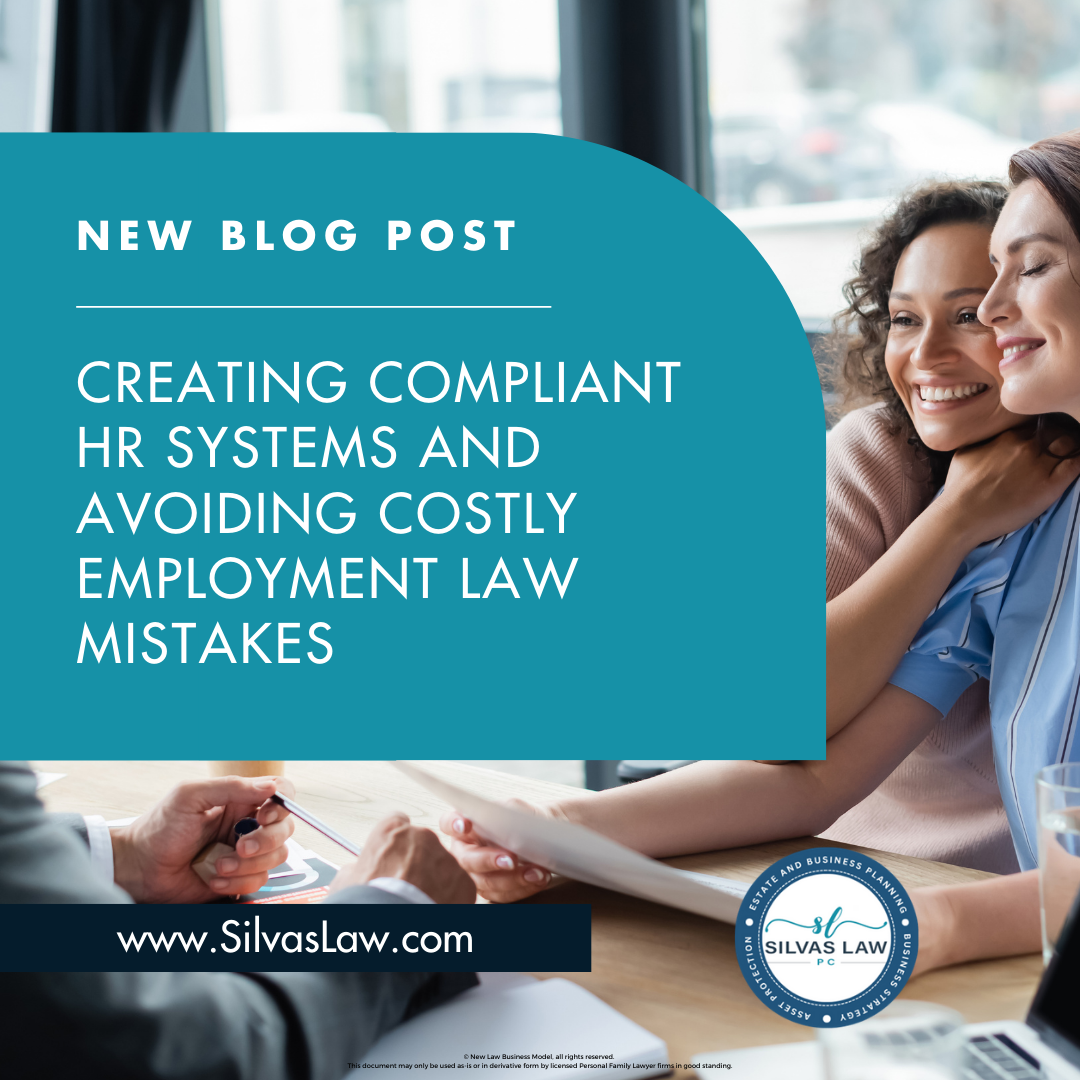BONUS BLOG: WHAT HAPPENED IN TECH AND LAW: 2024 RECAP FOR BUSINESSES
"The 15 changes you need to know."
DISCLAIMER: The below article is provided “as-is” and for informational purposes only.
This is not legal advice and may or may not be suitable for your situation.
Below is a summary of some of the key happenings in the legal and tech landscape in 2024 that impacts businesses, along with links to some third-party articles for more information. Note that this information is provided “as-is” and may be outdated by the time you read this.
1. US GOVERNMENT’S TIKTOK DIRECTIVE:
A law was passed in 2023 in the U.S. that grants the US government authority to ban users from using certain apps that the US government deems to be a threat to national security interests, including the popular TikTok app owned by a Chinese company. In 2024, the US government gave TikTok a January 19, 2025 deadline to either sell to a U.S. company or risk losing all its U.S. users. The move was driven by national security concerns over data access by foreign entities, intensifying scrutiny of foreign-owned tech platforms. Business owners using TikTok for marketing should prepare contingency plans for alternative platforms.
More info on current events (as of January 15, 2024) related to the TikTok impending ban: Lawmakers urge Biden to extend deadline for TikTok ban in US
Link to the law passed in 2023 giving authority for ban: Text - H.R.7521 - 118th Congress (2023-2024): Protecting Americans from Foreign Adversary Controlled Applications Act | Congress.gov | Library of Congress
2. CORPORATE TRANSPARENCY ACT LITIGATION:
The Corporate Transparency Act, designed to improve business transparency, took effect on January 1, 2024 requiring certain types of businesses to file Beneficial Ownership Information Reports with FINCEN.gov or face steep penalties. On December 3, 2024 (on the eve of the January 1, 2025 enforcement period beginning), enforcement of this Act was temporarily halted by a Texas federal court’s preliminary injunction. Although an appellate court initially reversed the injunction on Dec 23, the ruling was reinstated on Dec 26, leaving the Act’s enforcement in limbo pending a final decision. For business owners who haven’t yet filed BOI reports (which is currently optional during the appeal period), you must remain ready to quickly comply if the Act is reinstated for enforcement.
Link to more details: Beneficial Ownership Information Reporting | FinCEN.gov
3. COPYRIGHT OFFICE’S AI GUIDANCE:
In 2023, the U.S. Copyright Office issued a bulletin (which you can access here) allowing copyrights for works partially created with artificial intelligence, provided protection extends only to human-authored portions. This clarified the legal standing of AI-assisted works but left room for further interpretation in practice. In 2024, the U.S. Copyright Office then published the first part of an upcoming series of reports on the copyright issues that AI has brought to the forefront, including problems with digital replicas of voices, images, and artistic styles (such as the “Fake Drake” song that used a voice sounding exactly like Drake’s without his knowledge and went viral). For businesses utilizing AI, monitoring this guidance is crucial for safeguarding intellectual property.
Here is a link to the main site at the US Copyright office to track developments and get current reports: Copyright and Artificial Intelligence | U.S. Copyright Office
4. AI’S MOST IMPRESSIVE ACCOMPLISHMENTS:
AI breakthroughs in 2024 included Google’s quantum computer, Willow, achieving unparalleled computational speed. Businesses must consider how these AI advancements can impact operational efficiency and ethical governance.
Link to more info: Meet Willow, our state-of-the-art quantum chip (Google states, “Willow performed a standard benchmark computation in under five minutes that would take one of today’s fastest supercomputers 10 septillion (that is, 1025) years — a number that vastly exceeds the age of the Universe”)
5. COPYRIGHT LAWSUITS AGAINST VARIOUS AI BUSINESSES:
Various copyright lawsuits targeted AI developers for allegedly training models on copyrighted materials without permission. For business owners developing AI tools, ensuring proper licensing and ethical practices is vital to mitigate legal risks.
Link to more information: An End-of-Year Update to the Current State of AI Related Copyright Litigation | Insights | Ropes & Gray LLP
6. APPLE’S SIRI LAWSUIT:
Apple faced a high-profile lawsuit alleging misuse of recordings from inadvertent Siri activations, and reached a settlement in December 2024. Plaintiffs claimed these recordings violated privacy and data protection laws, raising questions about voice assistant technology’s compliance with evolving legal standards. Business owners relying on similar technologies should review data privacy practices to avoid similar pitfalls.
Link to more information: Apple Siri Eavesdropping Payout — Here’s Who’s Eligible And How To Claim
7. ROE V. WADE OVERTURNED:
While Roe v. Wade was overturned in June 2022, in 2024, this led to a patchwork of state laws regarding abortion rights, creating significant legal uncertainty. States across the US adopted varying stances, with some enacting near-total bans and others expanding protections. Business owners must navigate varying state requirements to ensure compliance, including compliance considerations if considering modifying travel policies in health care plans to allow employees to travel to states where abortion is legal.
Links to more details: Potential Business Impacts From the Overturning of Roe v. Wade | Paychex (this article has a good summary of some of the business implications) and 2 years after Roe v. Wade reversal: Impacts and what’s to come | CU Boulder Today | University of Colorado Boulder (this article has some statistics on what has happened in various states).
8. DATA PRIVACY EXPANSIONS:
Data privacy laws advanced significantly, with states like California and Colorado enhancing consumer rights. California’s updates strengthened protections under the California Consumer Privacy Act (CCPA), while Colorado introduced new rights under the Colorado Privacy Act (CPA), with several more states are slated to expand their privacy regulations in 2025.
Link to more info: Colorado Finalizes Privacy Act Rules: Key Updates for Businesses | Data Matters Privacy Blog
Globally, the EU’s Digital Services Act became a law in 2022, but didn’t take effect for most purposes until 2024. Business owners must update privacy policies and practices to align with these evolving standards based upon where the business is operating and targeting customers.
Links to more info: The EU’s Digital Services Act (more info on the Act) and Digital-Services-Act-Practical-Implications-for-Online-Services-and-Platforms.pdf (third party report with some helpful information)
9. NEW JERSEY’S DANIEL’S LAW:
Intended to protect judges’ and officials’ personal information, Daniel’s Law faced criticism for being exploited in civil litigation. Some businesses (even those outside New Jersey) reported Daniel’s Law being used against them to coerce settlements through privacy-related claims to certain online businesses that publish applicable types of contact information, prompting calls for reform. Business owners need to be aware of potential misuse of privacy protections in litigation.
Links to more info: Daniel's Law (government web site) and Recent Proliferation of Lawsuits Under New Jersey’s Daniel’s Law | White & Case LLP (mentioning types of lawsuits being filed to be aware of).
10. FRAUDULENT DEED SCHEMES:
Forged property deeds emerged as a major issue, targeting homeowners and business owners alike. Experts recommend using property alert services such as PropertyFraudAlert.com to safeguard against unauthorized title changes. This is particularly relevant for businesses owning multiple properties or high-value assets. You may want to consider using a service like PropertyFraudAlert.com or similar service to alert you any time a deed is recorded in the name of you or your company (if your company owns real estate).
Link to more info: Fidlar Technologies | Property Fraud Alert
11. DEPARTMENT OF LABOR’S CONTRACTOR CLASSIFICATION RULING:
The U.S. Department of Labor issued a March 2024 ruling clarifying the criteria for classifying workers as contractors versus employees. The ruling aimed to reduce misclassification and ensure fair labor practices while increasing compliance responsibilities for businesses. The bottom line is that some of your previous contractors may no longer fit the criteria for remaining a contractor. Business owners must carefully evaluate worker roles and contracts to avoid penalties under these new guidelines.
Link to more info: https://www.dol.gov/agencies/whd/flsa/misclassification/small-entity-compliance-guide
12. MINIMUM WAGE LAWS:
The federal minimum wage has remained at $7.25 per hour since 2009, but approximately 20 states are set to implement higher minimum wages in 2025. This shift reflects growing pressure to address living wage concerns and could significantly impact labor costs for business owners. Companies should prepare for potential adjustments in payroll budgets and wage structures to address inflation and rising costs of living.
Link to more info: https://www.paycor.com/resource-center/articles/minimum-wage-by-state/
13. BAN ON AGE INQUIRIES IN JOB APPLICATIONS:
Colorado expanded its laws in 2024 by passing the Job Application Fairness Act to prohibit employers from asking a candidate's age on job applications, aiming to reduce age discrimination in hiring. Similar laws were enacted in other states in the past (including California, Connecticut, Delaware, Minnesota, and Pennsylvania), signaling a growing trend toward protecting applicants from biases based on age. Business owners must review and revise hiring processes and job applications to comply with these changes.
Link to more info: INFO #9B Job Application Fairness Act (JAFA) 5.29.24 (Colorado government bulletin) and Colorado Employers Take Note: Are You Complying with the Job Application Fairness Act? | Foley & Lardner LLP (giving examples of other states and trends on this issue)
14. FTC INITIALLY ISSUED FEDERAL BAN ON NON-COMPETES THAT WAS HALTED:
The Federal Trade Commission (FTC) issued a groundbreaking federal ban on non-compete agreements in 2024, aiming to enhance labor mobility and competition. However, this regulation faced significant legal challenges and was subsequently halted by federal courts. The matter remains contentious, with future litigation likely to shape its final outcome. For business owners, stay tuned regarding the final outcome of this because it has significant implications for employee retention strategies and talent acquisition.
Link to more details: Noncompetes: What You Should Know | Federal Trade Commission
15. FTC'S FOCUS ON FALSE ADVERTISING CLAIMS:
In 2024, the FTC aggressively pursued companies making unsubstantiated claims about their products and services. This included scrutinizing marketing campaigns across industries, particularly in health, wellness, and tech sectors, including deceptive AI claims. The enforcement actions signal stricter compliance expectations. Business owners must ensure their advertising practices meet these rigorous standards to avoid costly penalties, and that any claims made in advertising (whether directly or through a testimonial) can be proven with verifiable evidence.
Link to more details: FTC Announces Crackdown on Deceptive AI Claims and Schemes | Federal Trade Commission
Schedule a complimentary call with us today to start planning your company’s future @ 817-264-7447 or by CLICKING HERE.
- - - - - - - - - - - - - - - - - - - - - - - - - - - - - - - - - -
CONSIDER...attending one of our next Silvas Law educational events
like...Protection, Succession, & Whiskey
See all of the events @ www.silvaslaw.com/events
SILVAS LAW | Comprehensive Business Estate Planning
Wills - Trusts - Real Estate - Privacy - Tax - Probate - Business - Succession

This article is a service of Tammy Silvas, Personal Family Lawyer®. We offer a complete spectrum of legal services for businesses and can help you make the wisest choices with your business throughout life and in the event of your death. We also offer a LIFT Business Breakthrough Session™, which includes a review of all the legal, financial, and tax systems you need for your business. Call us today to schedule.
The content is sourced from Personal Family Lawyer® for use by Personal Family Lawyer® firms, a source believed to be providing accurate information. This material was created for educational and informational purposes only and is not intended as ERISA, tax, legal, or investment advice. If you are seeking legal advice specific to your needs, such advice services must be obtained on your own separate from this educational material.













